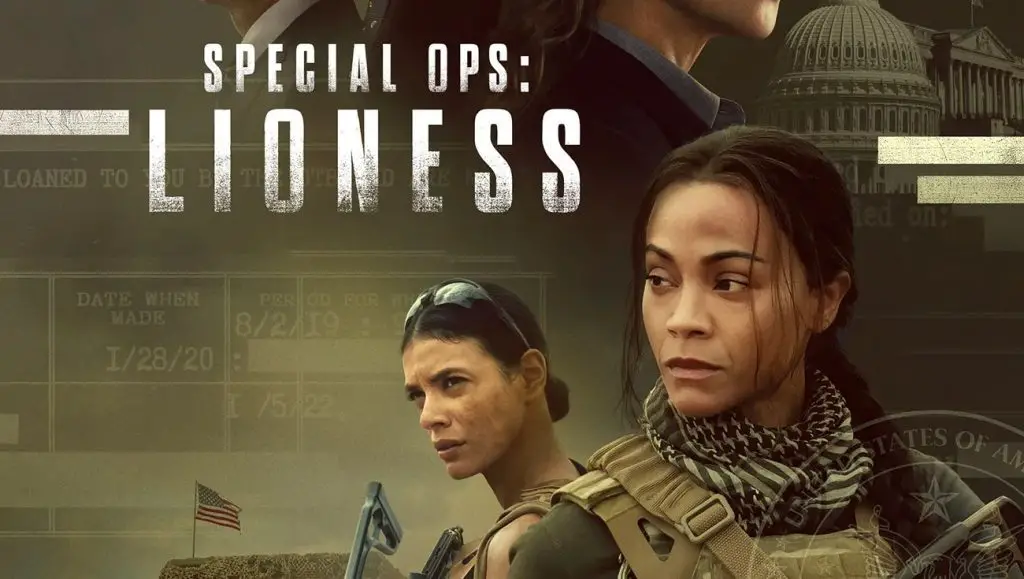The entertainment industry’s fascination with espionage narratives is soaring, with shows like The Night Agent and Tom Clancy’s Jack Ryan captivating audiences worldwide. However, none of these would be conceivable without the quietly intelligent allure of Homeland, which paved the way for a whole new genre with its thoughtful exploration of gender norms through the character of Carrie Mathison, brought to life by Claire Danes. The recent introduction of Zoe Saldaña’s character, Joe, in Paramount+’s new series, Special Ops: Lioness, based on the real-life CIA task force, is a testament to this development. Yet, it remains uncertain how far this character would push the narrative in the Taylor Sheridan’s series, which presents an ensemble cast led by Saldaña. The series manages to retain the introspective solace inherent to the espionage thriller genre, harmoniously blending it with a detailed representation of harsh reality. Yet, something seems oddly out of place.
Deriving its plot from the factual Lioness Program, an exclusively female unit established for the Army and Marine Corps, Special Ops: Lioness follows Joe, a determined Marine, as she leads an all-female undercover CIA team. Their mission is to befriend and alter the loyalties of wives, mothers, girlfriends, and other women closely associated with male terrorist leaders. As Joe grapples with the aftermath of a shocking opening, the Lioness Program, under the leadership of Kaitlyn Meade (Nicole Kidman) and Donald Westfield (Michael Kelly), evolves through the incorporation of a new recruit. The team welcomes Cruz, an assertive Marine Raider portrayed by Laysla De Oliveira, to work undercover alongside Joe. However, their contrasting personalities stir up an uneasy alliance, as Joe’s calm and composed nature clashes with Cruz’s eagerness for complete transparency. The series unravels layers of intrigue in the interactions between Joe and Cruz, delving into the cynicism that pervades their lives.
Zoe Saldaña Ventures into Uncharted Territory with ‘Special Ops: Lioness’
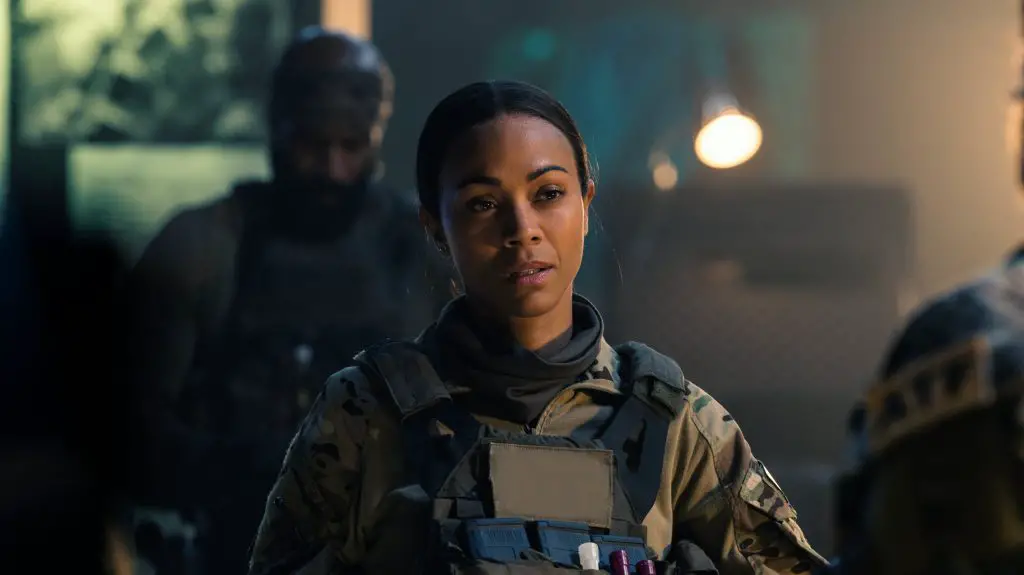
Breaking away from her celestial journey in the Marvel franchise, Saldaña grounds herself in one of her most gritty and intricate roles yet. Joe comes across as a pragmatic individual, making swift decisions that later bear heavy consequences. As a character battling severe PTSD and fraught nerves after a disastrous mission in Syria, Saldaña’s portrayal captivates audiences, making them eager to know more about Joe. The pilot episode, “Contractual Soldiers,” provides a glimpse into Joe’s personal life, depicting strained family relationships that resonate with countless real-life military personnel. Sheridan effectively captures this through a poignant narrative that aligns with the emotional withdrawal often experienced by these individuals.
On the other hand, De Oliveira’s portrayal of Cruz is equally compelling and unyielding. It’s no simple task to portray a character like Cruz, burdened with trauma and pain, but De Oliveira manages it with exceptional heart and a bare vulnerability. Cruz’s journey, marred by years of abuse, loss, and struggle, is a testament to her resilience, evoking empathy and support from the audience. While her narrative may seem clichéd, De Oliveira’s performance as Cruz illustrates the meaning of selfless dedication to a higher purpose.
Kidman is a delight to watch in her role as Kaitlyn, the powerful ally to Joe. As the CIA’s senior supervisor, she expertly navigates the demanding world of politics and the challenges of being a woman in the intelligence community. This dynamic, paired with Kelly’s portrayal of the Deputy Director, Donald, creates a formidable advisory team focused on bringing out the best in their unit. Even with limited screen time, Kelly’s character Donald, a man accountable to his superiors, commands attention through his determination to do what he perceives as right, despite the potential repercussions.
‘Special Ops: Lioness’ Features Strong Characters but a Patchy Narrative
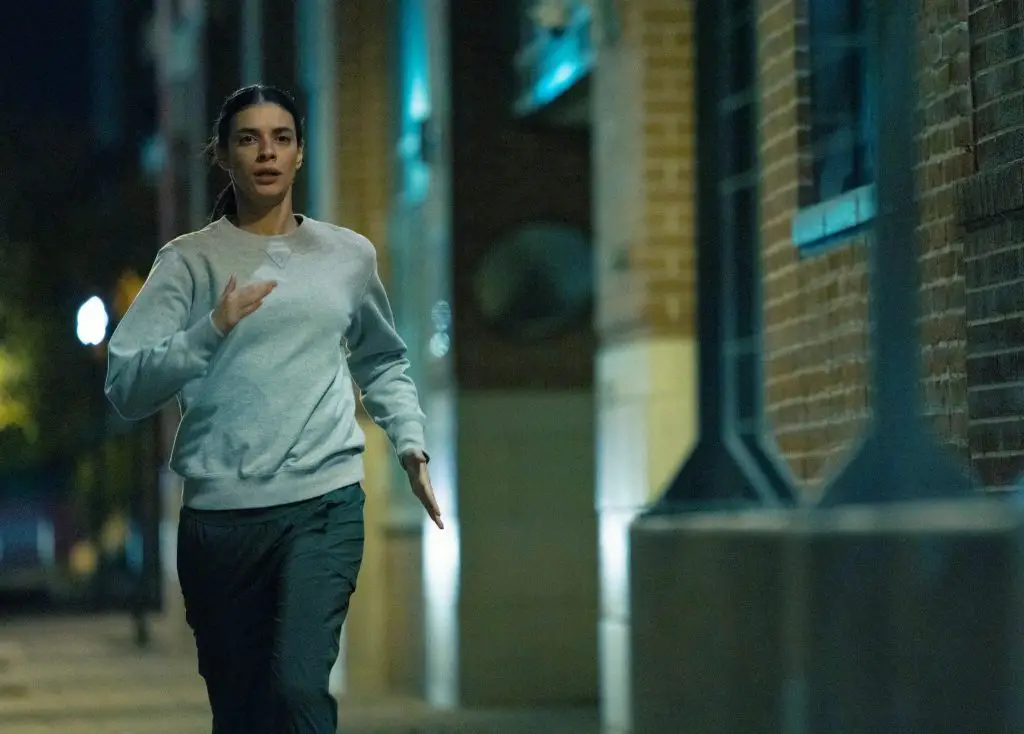
Audiences who have only seen the first episode of Special Ops: Lioness will yet have to wait for Morgan Freeman’s appearance. As hinted in the trailers, the renowned actor is likely to play the President of the United States, a fitting role for an actor of his caliber. The supporting cast of the show, including Dave Annable and Stephanie Nur, provides captivating performances that keep audiences engaged.
Special Ops: Lioness stands out as an insightful character study set in the intricate world of espionage. The narrative thrives in its dark and gritty atmosphere and boasts characters that are written with notable skill and ambition. The series is engaging, and its theatrically dramatic locations and graphics add an extra layer of appeal.
However, Sheridan’s previous track record in writing female characters is a point of concern, which Special Ops: Lioness partly addresses by leading its narrative with strong women in a traditionally male-dominated environment. But this also results in some problematic stereotypes. The character of Cruz, in particular, could be seen as an exploitative device as she’s an abused woman of color under constant control. Cruz’s backstory seems riddled with stereotypes and doesn’t do much to challenge them. The portrayal of an all-female unit in a predominantly white, male-dominated CIA also raises some eyebrows.
Taking into account the current demographics of the U.S. military, where women comprise 17% of the Armed Forces, and the overrepresentation of Hispanic men and women among recruits, Sheridan’s narrative seems to adhere to a sense of realism. But does it all tie together in a sensible way?
Taylor Sheridan’s Trouble with Writing Women Continues
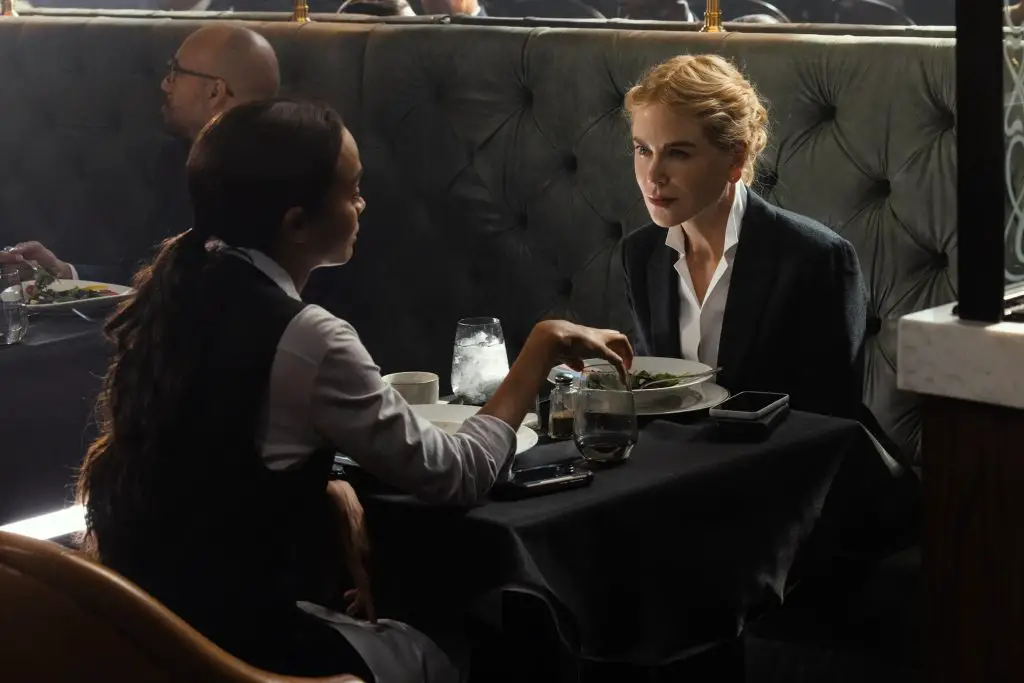
An analysis of the female characters in Special Ops: Lioness reveals a problem. While these characters challenge gender stereotypes and uphold gender equality, they still reinforce the hegemonic masculinity often seen in our armed forces. Sheridan’s writing tends to box female characters into stereotypes, making them appear cold, distant, abused, or hurt. This representation, although arguably a depiction of their PTSD, points to a larger problem: a lack of diversity and women’s voices in Sheridan’s writing room.
The series also raises concerns about American exceptionalism and the exploitation of women for a cis-heteropatriarchy agenda. The representation of religion in the show, at least from the premiere episode, doesn’t pass The Riz Test and falls short in its depiction of women. The narrative could benefit from including female writers to better represent and comment on women’s military experiences.
The character of Cruz, despite being well-portrayed by De Oliveira, raises questions about the narrative’s portrayal of abuse. Must a woman experience trauma to find her purpose? Sheridan’s previous works, Wind River and Sicario, feature female leads who are often undermined by their male counterparts. Special Ops: Lioness seems to continue this pattern, relegating women to roles where men remain the saviors through patriarchal systems controlling their decisions. This isn’t to say women can’t be soldiers or face real threats, but the series raises questions about the portrayal of powerful female roles written by men.
‘Special Ops: Lioness’ and the Issue of American Exceptionalism
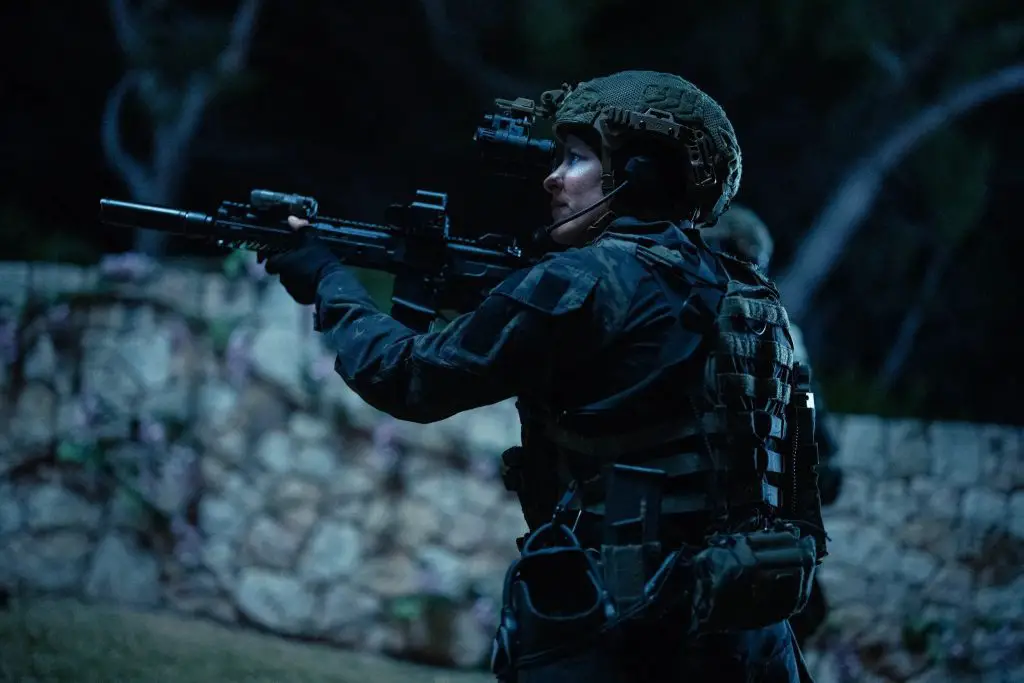
The problem lies in the depiction of powerful women in these systems when written by men. The portrayal of Joe and Cruz as intelligent, yet profoundly isolated and discontent, doesn’t offer an alternative model of feminity reflective of our modern society, due to the lack of diversity
and female perspectives in the writing room. Instead, they fall into a limited narrative that puts their strength and character into the service of an overwhelmingly masculine, power-driven system. The inclusion of more women in writing these narratives would allow for more nuanced character development and a wider range of stories to be told.
In its quest to expose the darkness of human nature, ‘Special Ops: Lioness‘ misses the mark when it comes to representing diversity, religion, and femininity accurately and fairly. Its depiction of American exceptionalism is uncomfortable, painting the United States as a savior, implicitly endorsing the destructive interventions in foreign countries. This is not to say that an exploration of these themes is off-limits, but that they require a nuanced and sensitive approach.
While there is still potential for ‘Special Ops: Lioness’ to address these issues in later episodes, as of now, it is difficult to ignore the problematic narrative choices. From a cinematography perspective, the series excels with its dark, atmospheric visuals and grounded performances. Yet, its oversimplified and occasionally problematic portrayal of gender norms, diversity, and American exceptionalism detracts from its overall quality.
Conclusion
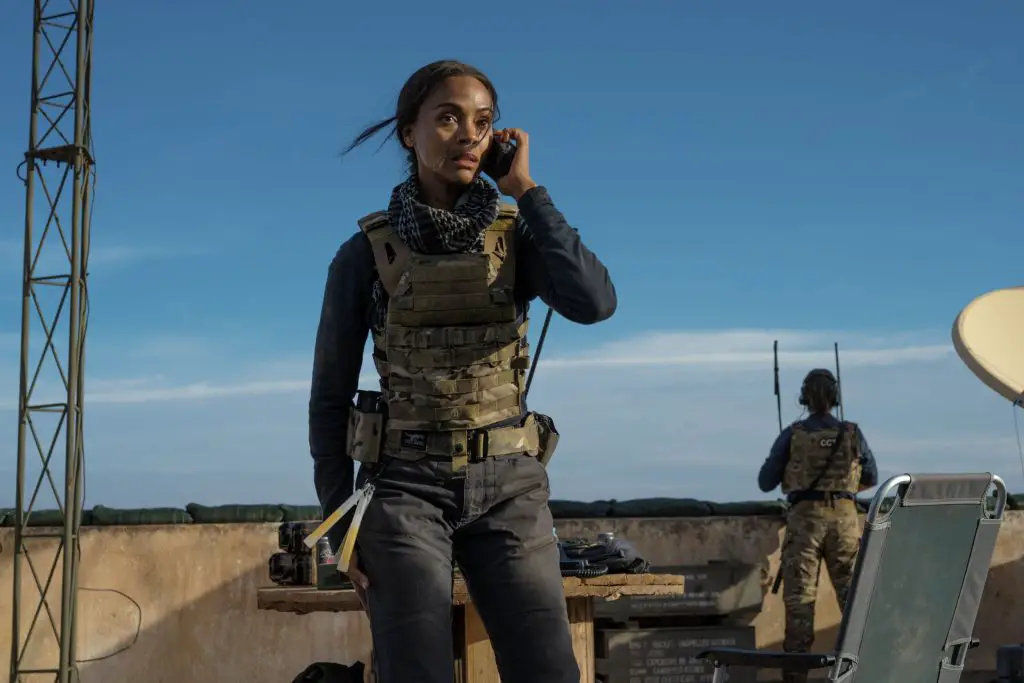
‘Special Ops: Lioness‘ is a show that stands out for its ambitious character study, its unique premise, and its ability to spotlight stories of strong women in a traditionally male-dominated environment. However, its narrative choices—particularly in its portrayal of gender roles, diversity, and American exceptionalism—present concerns that need addressing.
In spite of these issues, the performances of the main cast members—Saldaña, De Oliveira, and Kidman—are remarkable, bringing depth to their characters. Sheridan’s storytelling style and the series’ cinematography create a unique atmosphere that draws audiences in, and there is potential for it to become a defining espionage series.
Nonetheless, moving forward, ‘Special Ops: Lioness‘ would benefit greatly from increased diversity in the writing room and a more nuanced approach to its characterization and exploration of complex themes. Only time will tell if the show can effectively address these issues and fulfill its full potential.


